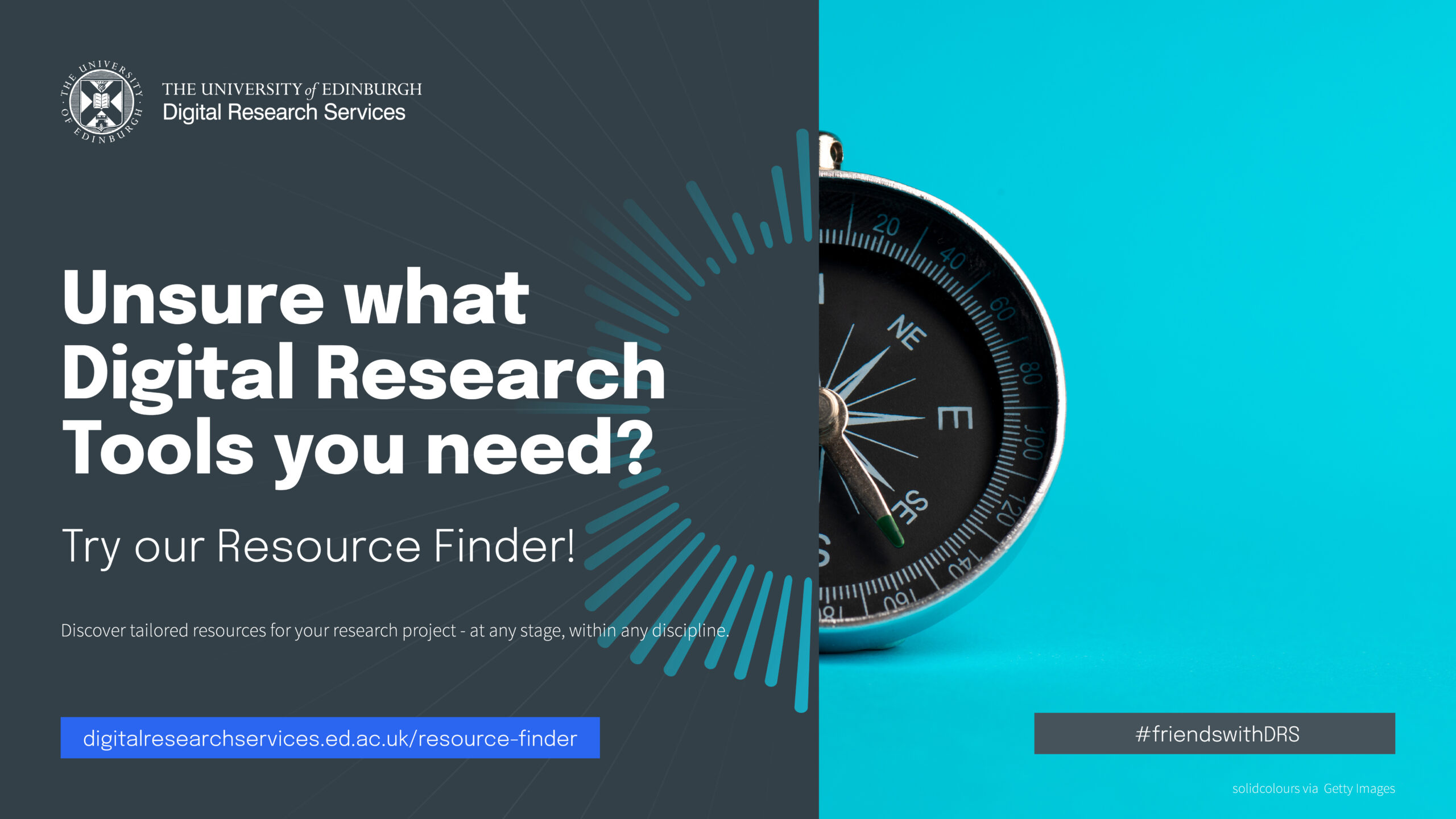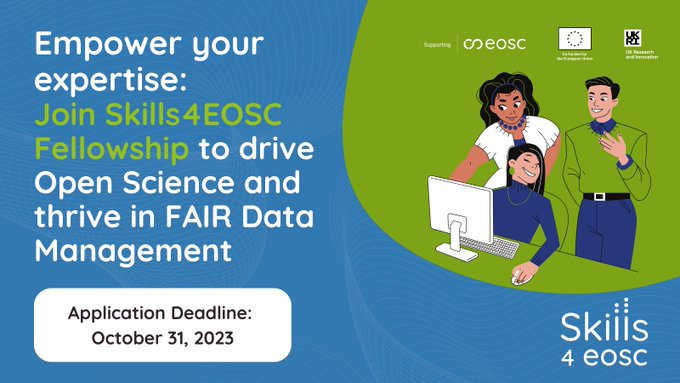Guest blog post by Dr Raj Kumar Bhardwaj, Chief Librarian at St. Stephen’s College – University of Delhi, New Delhi, India.
About myself
I am Dr Raj Kumar Bhardwaj, Chief Librarian at St. Stephen’s College, University of Delhi and Assistant Professor at the Central University of Punjab. I am the author of 65 research papers and have delivered over 100 talks. Throughout my career, I have received a number of awards, such as the Commonwealth Professional Fellowship (UK).
I got an opportunity to avail myself of the two-week fellowship on Research Data Management hosted by the University of Edinburgh. My local mentor was Robin Rice, Data Librarian and Head of Research Data Support of the Information Services.
My experience in Edinburgh
Day #1
In the morning, I met Robin. She provided me with a comprehensive overview of the Research Data Services and introduced me to other team members: Simon, Kerry, Maeve, and Stefano.
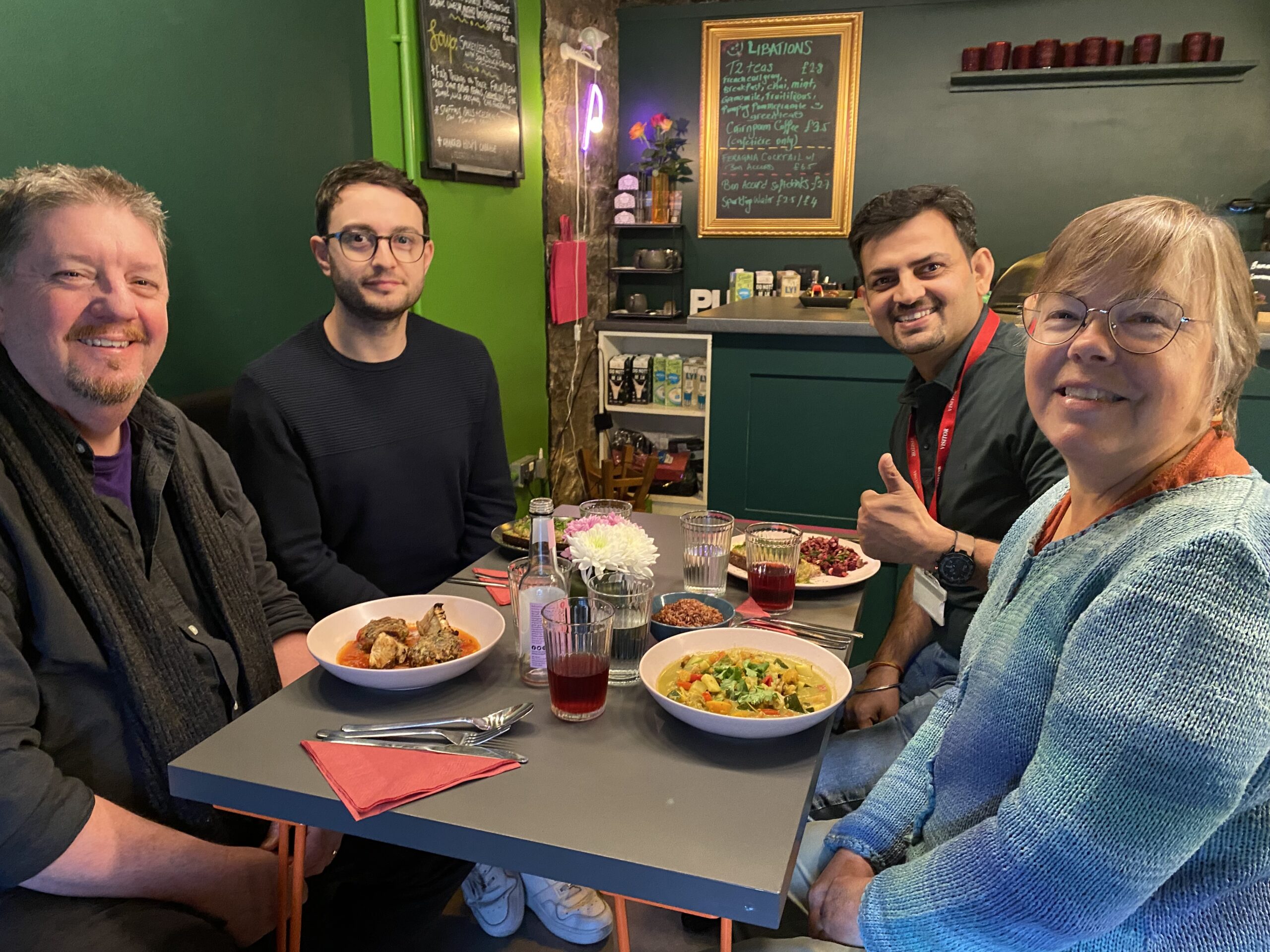
From left: Simon Smith, Stefano Bordoni, Raj Bhardwaj, Robin Rice at Pulse vegan cafe.
On the same day, I had the pleasure of meeting Dr Elizabeth Williams, Head of Library Academic Support, which is a primary link between Colleges and Schools, and the Library.
Later, I met Jeremy Upton, the Director of Library and University Collections. Jeremy shared his insights on the potential use of AI in the library to enhance results. To conclude the meeting, Jeremy took me on a library tour, where I had the opportunity to view the Makerspace section.
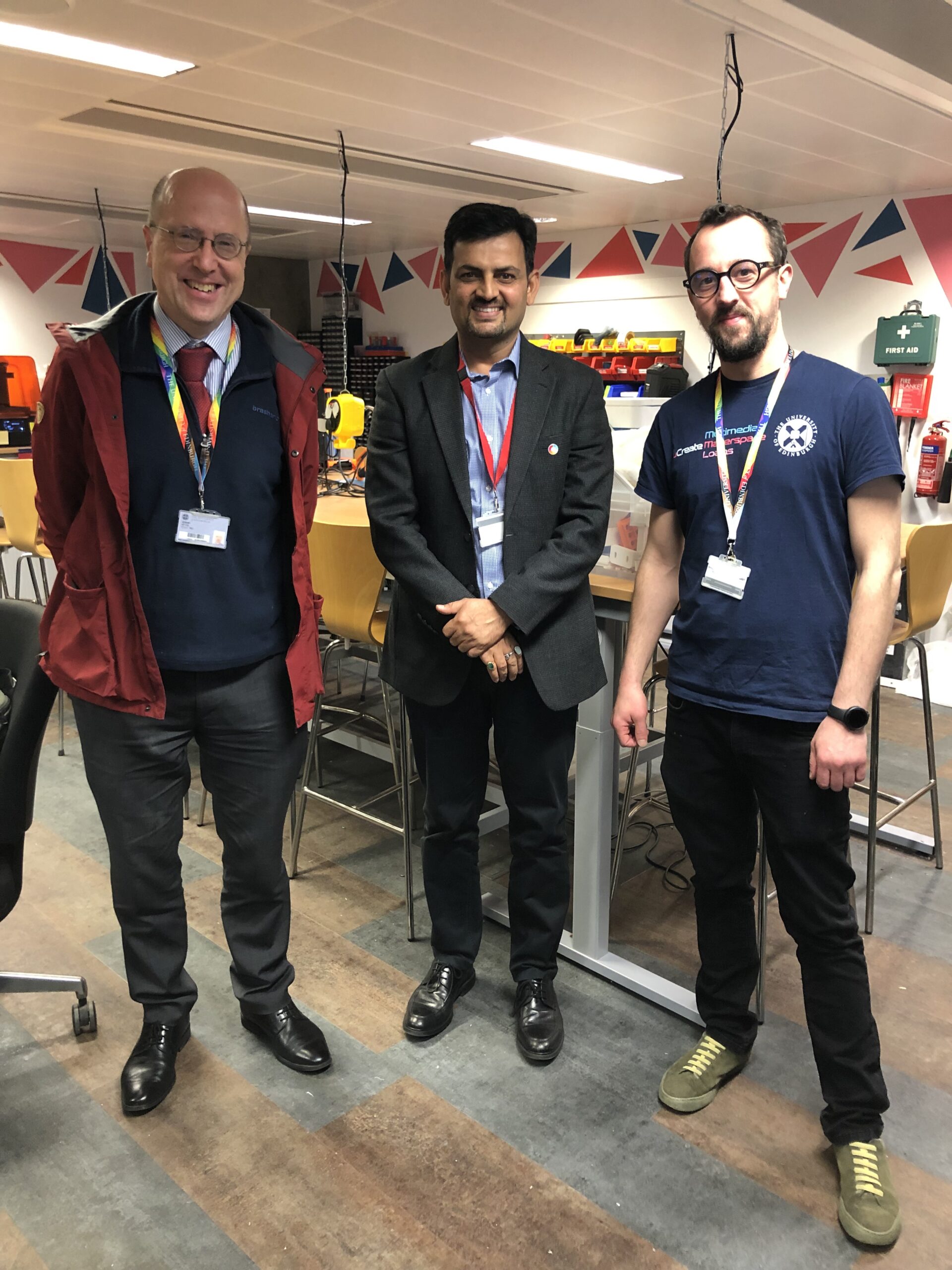
Jeremy Upton, Raj Bhardwaj, Simeon Newbatt (Makerspace Manager).
Day #2
On the 7th of November, I met Dominic Tate, Head of Library Research Support. Dominic explained the structure of the Converged Services in the university, where the library plays a vital role along with IT. We also discussed the roles and responsibilities of his team members in providing research support services.
The same day, I met Maeve McCann, who operates the DataVault facility. She thoroughly explained DataVault’s structure, and the fees applied for data over 100GB.
Later, I attended the workshop on open access publishing organized by Dr Theo Andrew. Theo emphasized the UoE strategies on this topic and showcased systems available to researchers, such as library-supported open access journals.
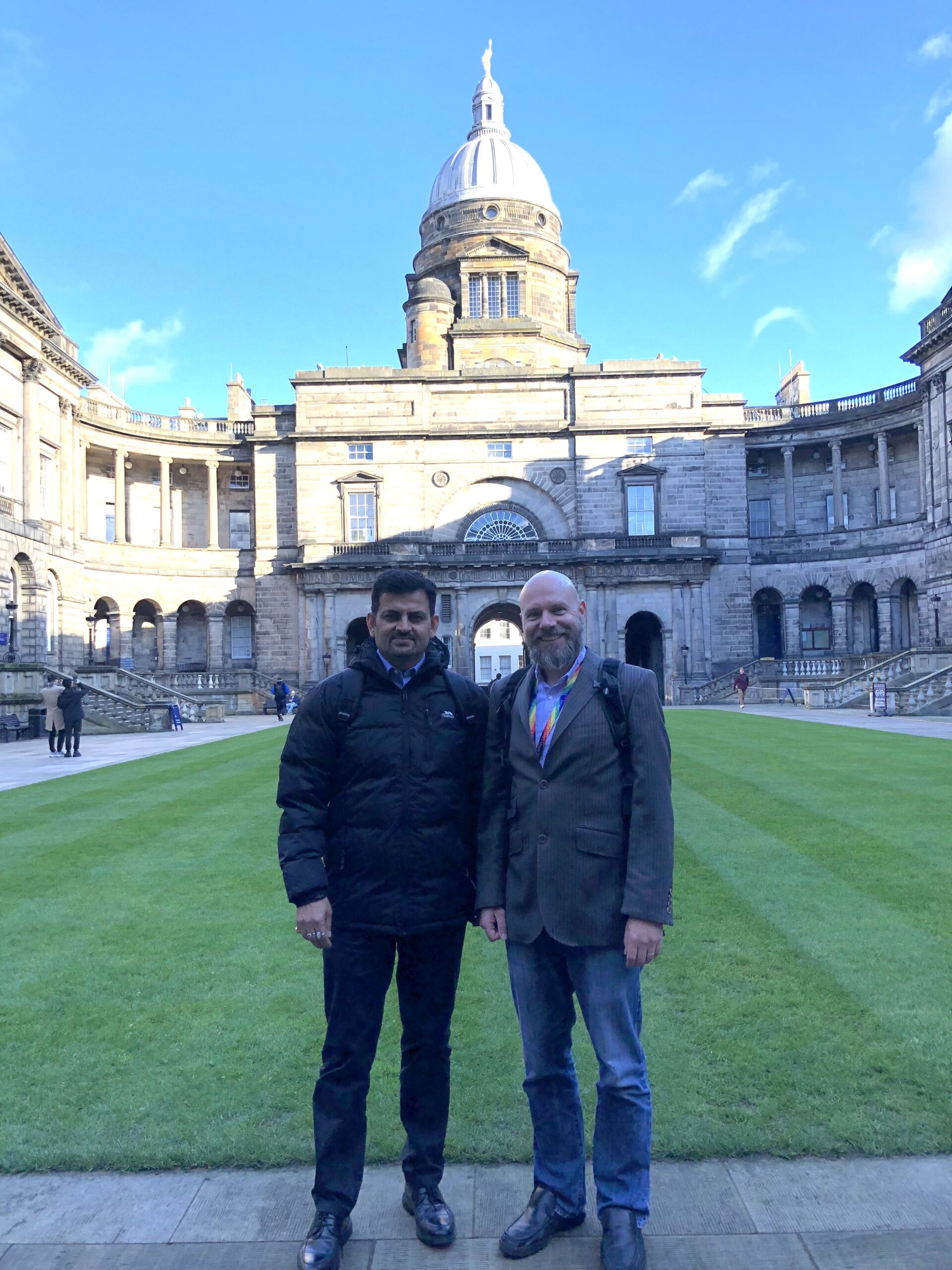
Raj and Theo at Old College
Day #3
The first meeting of the day was organized with Stefano Bordoni, who curates DataShare: the open access data repository of the university. He emphasized the popularity of DataShare among researchers. Stefano demonstrated the overall structure of DataShare.
Later, I met Simon Smith, another member of the RDS team. He explained the Data Management Plan tool, DMPOnline, which help users with their data management. He also delivers training.
Then, I met Sara Thomson, Digital Archivist of the University. Sara explained the significance of digital archiving within the university, especially non-published works. The University of Edinburgh made substantial investments on this.
Later, I met Mary Paulson-Ellis, Royal Literary Fellow who assists researchers 12 slots per week for researchers, including master’s students, on various aspects of academic writing.
The fifth meeting was with Kerry Miller. She promotes several initiatives on the topic of ethics and research integrity, cultural change and citizen science; among them, the Edinburgh Open Research Conference. She also delivers training on those subjects.
The last meeting of the day was with Kevin Ashley, Director of the Digital Curation Centre, who developed the DMPonline tool. He discussed a variety of aspects relating to the start of the National Data Service and discussed data produced under different national legislations.
Day #4
I first met Neil, the Citizen Science Engagement Officer at the University of Edinburgh (UoE). Neil delivers Participatory Science initiatives. They encourage researchers to integrate citizen science into their projects.
The last meeting of the day was with James Reid, the Geospatial Service Manager. Digimap, as a national service, covers multiple datasets, including ordinance data, environmental data, economic data, etc.
Day #5
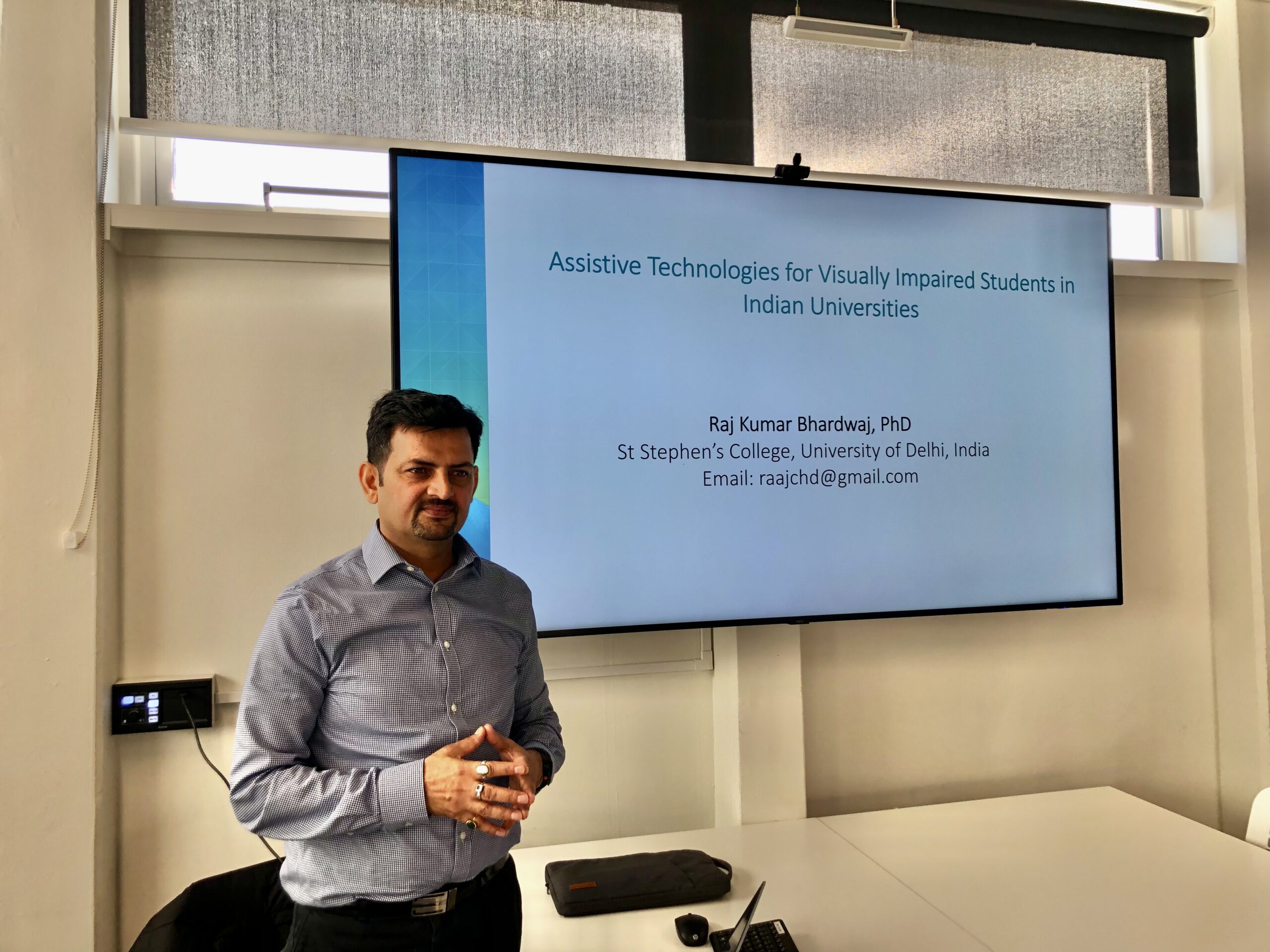
Raj giving his presentation at Napier University.
I delivered a talk at Edinburgh Napier University on “Assistive Technologies for the Visually Impaired in Indian Universities”, where I shared the work I conducted over the last three years. The response was positive, with several attendees and many questions asked.
In the afternoon, I met with Nik Tahirah Nik Hussin, who introduced me to Pure and Worktribe: two services storing research outputs and grant applications records.
I am highly grateful to Robin for this opportunity. I wish to work more with her wonderful team, which she leads graciously. My visit to the University of Edinburgh was full of joy and learning.
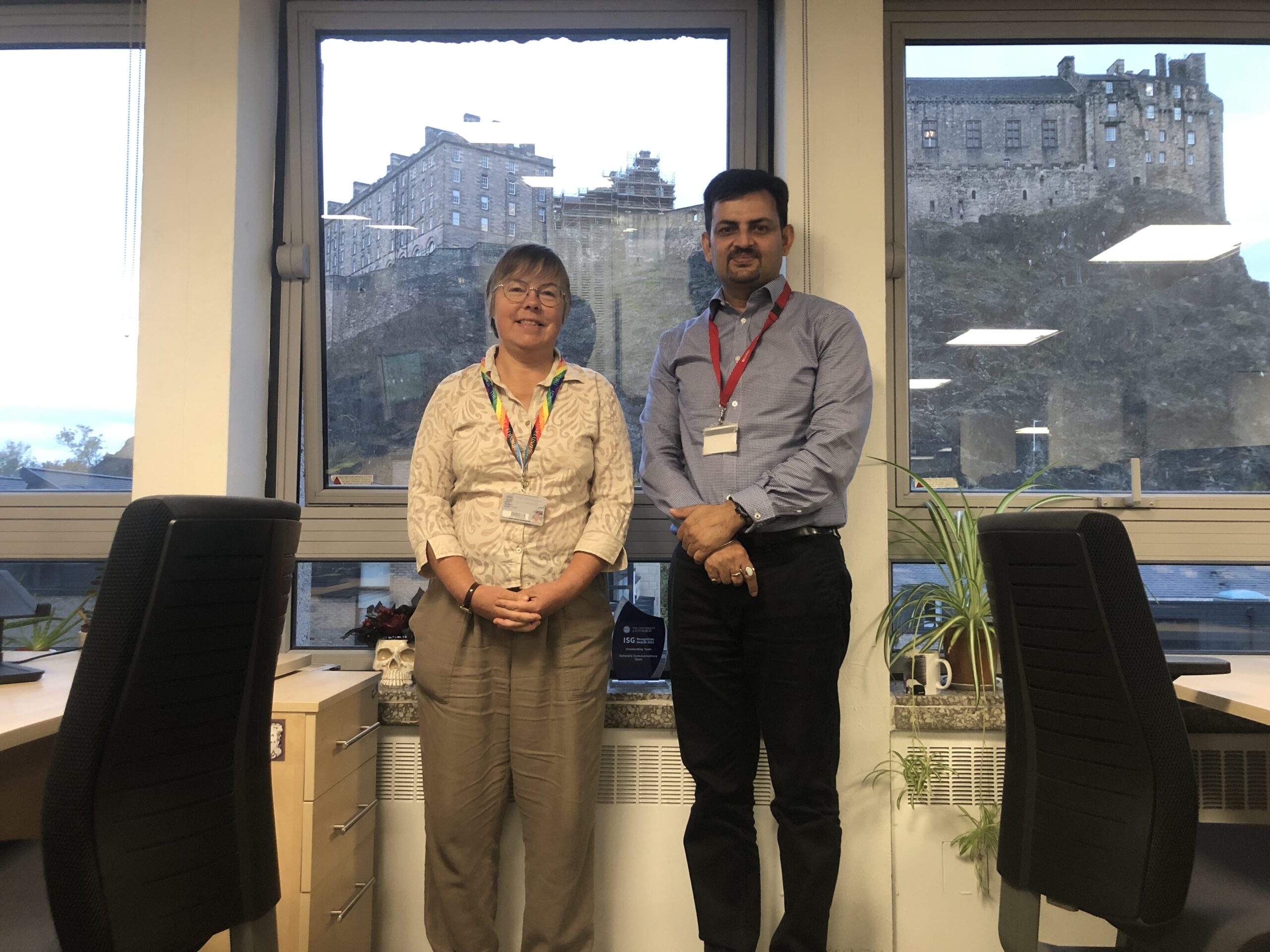
Robin and Raj at the team’s office in Argyle House.

